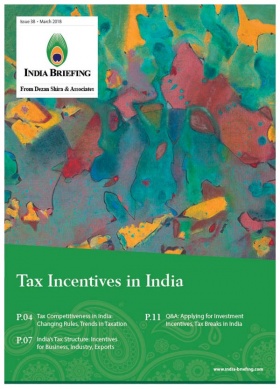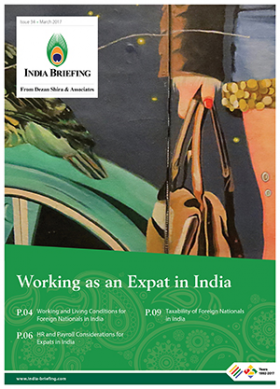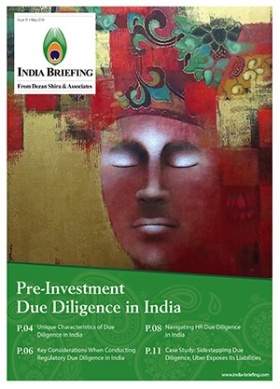India’s Tourism Sector: New Investment Opportunities Emerge as Market Segments Widen
India’s travel and tourism industry generated US$91.3 billion (Rs 5,949 billion) in 2017, and is projected to double over the next decade. Foreign spending alone accounted for US$26 billion (Rs 1,961 billion) last year.
The tourism industry employs about five percent of India’s total work force, and received 6.3 percent of the total investment in India in 2017 – at US$41.6 billion (Rs 2,705 billion). Foreign direct investment (FDI) into the sector is expected to rise by an average of 6.7 percent year on year.
Multiple drivers are shaping this dynamic growth trend.
Key among them is the role played by technology startups, both international and domestic, which have introduced a slew of online services and innovative products in the hospitality sector. AirBnb, Makemytrip, Cleartrip, Yatra, Goibibo, and OYO Rooms, are among some of the most popular travel and tourism startups that have created easier, cheaper, and faster ways to make bookings, find accommodations, and curate personalized tourist experiences.
Invest in new tourism segments
An estimated 18 million international tourists will visit India in 2018; this figure is projected to reach 30.5 million by 2028.
India is rich in history, culture, and well-preserved natural landscapes, offering a multitude of experiences for a diverse segment of tourists across the breadth of the country. In fact, India is host to 35 world heritage sites, 10 bio-geographical zones and 26 biotic provinces.
As a result, a diverse portfolio of tourism products are available – cruises and adventure activities, medical and wellness facilities, international sports events, business and conference facilities, eco-tourism, film festivals, and rural and religious tourism.
Positive growth trends in traditional segments, a multitude of niche and mainstream tourism offerings, and liberal FDI policies underscore the rising investment appeal of India’s tourism and hospitality sector.
For instance, travelers interested in rural and traditional experiences may visit India’s temples and historical monuments in the states of Delhi, Gujarat, Rajasthan, and Tamil Nadu. Those looking for adventure can head to the mountains for organized trekking or rafting expeditions in the Himalayas and to the eastern or western coasts for diving and snorkeling. India’s wildlife conservation parks are well organized, and the state of Madhya Pradesh boasts of tiger reserves that attract large numbers of tourists from across the globe.
As awareness of alternative forms of medicine grows in western countries, India’s expertise in yoga and herbal cures is gaining recognition internationally. The nutrition and wellness tourism segment is growing rapidly, and the government recently set up the Department of Ayurveda, Yoga and Naturopathy, Unani, Siddha, and Homoeopathy (AYUSH) to coordinate growth and investment propel in the sector. AYUSH currently generates about US$120 billion (Rs 7800 billion) annually.
Medical tourism in India is also witnessing a huge increase due to the low costs of important medical procedures, typically up to 30 percent cheaper than in the US or UK. The medical tourism market accounted for US$3 billion (Rs 195 billion) in 2017, and is expected to double this year due to easier norms for medical visas. India is the top destination for elective procedures, such as cosmetic surgery, hip or knee replacements, dental procedures and, most commonly, infertility treatments.
Meeting, Incentive, Conferencing, and Exhibition (MICE) tourism in India caters to a variety of trade meetings, international conferences and conventions, events and exhibitions, and has captured the interests of several major hotel brands. India earns about US$4.8 billion (Rs 292.7 billion) yearly through tourism in this segment.
India liberalizes FDI policy
Tourism is a top FDI sector in India, attracting more than US$10.48 billion (Rs 681.2 billion) in foreign investments in the last decade.
India has liberalized its FDI policy in recent times, and now allows:
- 100 percent FDI under the automatic route in tourism and hospitality;
- 100 percent FDI in tourism construction projects, including the development of hotels, resorts, and recreational facilities; and,
- 100 percent FDI in the AYUSH sector, which is relevant for the wellness and medical tourism segments.
The FDI policy also caters to businesses engaged in travel agency work, tour operations, tourist transport (surface, air, and water), setting up facilities for cultural, adventure, and wildlife experiences, sports and health units as well as convention centers.
India also has state-wise incentives, such as tax holidays, exemption from luxury tax, goods and services tax, or stamp duty as well as concessions on electricity tariff and easier license renewals to attract investors to set up in certain regions of the country.
Some other schemes and guidelines can be found here.
Incredible India 2.0
India’s federal budget for 2018 announced the ‘Incredible India 2.0’ initiative to develop the country’s hospitality sector through investments in tourism infrastructure.
The Swadesh Darshan and Pilgrimage Rejuvenation and Spirituality Augmentation Drive (PRASAD) programs aim to propel investments in tourism.
13 theme based tourist circuits are being developed under the US$109 million (Rs 7.8 billion) Swadesh Darshan scheme.
Further, US$15.4 million (Rs 1 billion) in federal funding is available for the beautification and maintenance of pilgrimage centers under the PRASAD scheme.
To improve the suitability of these projects, public-private-partnerships (PPP) have been introduced under both initiatives.
Companies may provide state governments with proposals, which if approved, will guarantee them government funding and tax rebate.
Other federal initiatives to promote tourism
- e-Ticketing for cultural sites;
- Multi-lingual telephone help lines for foreigners;
- Digital India scheme to promote online service providers;
- Online databases for cultural shows and performances;
- e-Tourist visa facility for eligible countries;
- UDAN scheme to promote travel to smaller heritage sights by reducing air ticket prices;
- Improving sea ports for cruise tourism; and,
- New golf tourism.
About Us
India Briefing is published by Asia Briefing, a subsidiary of Dezan Shira & Associates. We produce material for foreign investors throughout Eurasia, including ASEAN, China, Indonesia, Russia, the Silk Road, & Vietnam. For editorial matters please contact us here and for a complimentary subscription to our products, please click here.
Dezan Shira & Associates provide business intelligence, due diligence, legal, tax and advisory services throughout India and the Asian region. We maintain offices in Delhi and Mumbai and throughout China, South-East Asia, India, and Russia. For assistance with India investment issues or into Asia overall, please contact us at india@dezshira.com or visit us at www.dezshira.com.
- Previous Article India’s Auto Component Industry: Investment Incentives by Location
- Next Article Licencias industriales: normas y regulaciones















